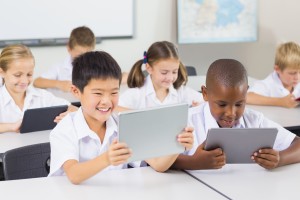
In today’s fast-changing world, educators need to prepare students with the necessary skills to succeed in the 21st century. Traditional education methods are no longer enough to meet the demands of our globalised and technology-driven society. To ensure our students are well-prepared for the future, we must focus on developing skills that go beyond academic knowledge. In this blog post, we will explore the important skills students need to succeed in the modern world and discuss how teachers can incorporate them into their teaching.
- Thinking Critically and Solving Problems: In today’s complex world, critical thinking and problem-solving skills are essential. Students should be able to analyse information, evaluate different perspectives, and come up with innovative solutions to real-life challenges. Teachers can encourage critical thinking by asking questions, promoting collaborative problem-solving, and applying knowledge to practical situations.
- Collaboration and Communication: In the digital age, collaboration and effective communication are vital skills. Students need to learn how to work well with diverse teams, actively listen, express their ideas clearly, and use different communication tools. Teachers can encourage collaboration by assigning group projects, facilitating discussions, and incorporating presentations, which allow students to practice teamwork and develop strong communication skills.
- Creativity and Innovation: In an innovation-driven world, nurturing creativity is crucial. Encouraging students to think outside the box, explore different perspectives, and generate original ideas can help them become adaptable and innovative thinkers. Educators can promote creativity through hands-on activities, project-based learning, and open-ended assignments, allowing students to express their creativity and explore new solutions.
- Information Literacy: With the abundance of information available today, students need strong information literacy skills to navigate and critically evaluate sources. Educators can teach students how to find reliable information, assess its credibility, and use it ethically. By incorporating research projects and teaching effective online search strategies, educators empower students to become discerning consumers and creators of information.
- Adaptability and Resilience: In a rapidly changing world, adaptability and resilience are invaluable traits. Students must learn to embrace change, navigate uncertainty, and recover from setbacks. Educators can foster adaptability and resilience by creating a supportive learning environment that encourages risk-taking, perseverance, and a growth mindset. Providing opportunities for students to face challenges, reflect on experiences, and learn from failures helps build their resilience.
As educators, our role extends beyond imparting knowledge. We must equip our students with the skills they need to thrive in an ever-evolving world. By focusing on developing 21st-century skills such as critical thinking, collaboration, creativity, information literacy, adaptability, and resilience, we can prepare our students to be lifelong learners and successful contributors to society. Let’s embrace the opportunities presented by the 21st century and empower our students to become confident and capable leaders of tomorrow.



